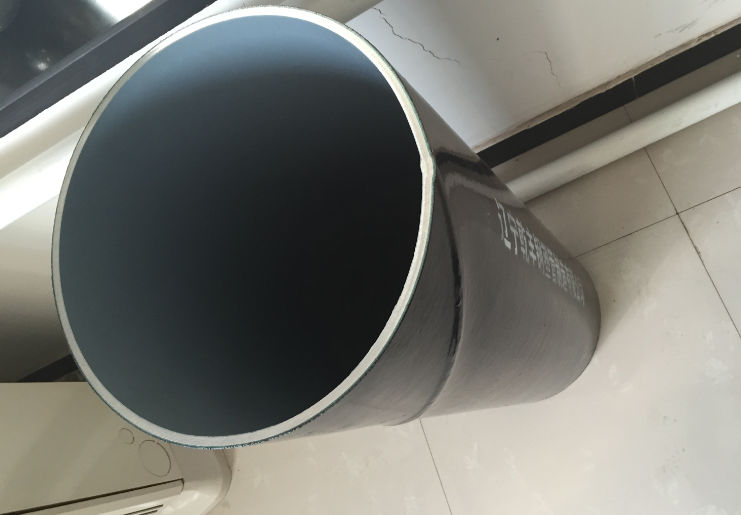Hello, welcome to visit the official website of Liaoning Qianfeng Steel Plastic Pipe Manufacturing Co., Ltd.!
Hello, welcome to visit the official website of Liaoning Qianfeng Steel Plastic Pipe Manufacturing Co., Ltd.!
Liaoning Qianfeng Steel Plastic Pipe Manufacturing Co., Ltd.
Address: Dawa Lingang Economic Zone, Panjin City
Website: www.jinlongqc.com
Sales of a company
General Manager: Zhao Lei 18241448558
Sales Minister: Liu Wenli 18841483313
Sales Second Company
General Manager: Zhao Shuxiu 13188225517
Sales Minister: Pei Xiaojun 13804148185
Sales three companies and foreign trade
General Manager: Dai Gang 13604976693
Sales Minister: Chen Liming 18524274505
Sales four companies
General Manager: Chen Tieyan 18341472200
Sales Director: Meng Lin 19904144892
Steel-plastic composite pipe, the product uses seamless steel pipe and welded steel pipe as the base pipe, and the inner wall is coated with high-adhesion, anti-corrosion, food-grade sanitary polyethylene powder coating or epoxy resin coating. The water-supply galvanized and plastic-coated composite steel pipe made of pre-treatment, pre-heating, internal coating, leveling, and post-treatment processes is an upgraded product of the traditional galvanized pipe. The steel-plastic composite pipe is generally connected by thread.
A new type of composite pipe, referred to as steel-plastic pipe in many places. Steel is an iron material; plastic refers to plastic. The plastic in the steel-plastic composite pipe is generally high-density polyethylene (HDPE).
There are many classifications of steel-plastic composite pipes, which can be classified into steel-belt reinforced steel-plastic composite pipes, seamless steel pipe-reinforced steel-plastic composite pipes, perforated steel belt steel-plastic composite pipes, and steel-plastic composite pipes with steel mesh framework. At present, the most popular one on the market is the steel belt reinforced steel-plastic composite pipe, which is our
The commonly said steel-plastic composite pressure pipe, the middle layer of this pipe is a steel strip layer formed by butt welding of high-carbon steel strip by crimping, and the inner and outer layers are both high-density polyethylene (HDPE). The middle layer of this kind of pipe is steel belt, so the pressure bearing performance of the pipe is very good. Unlike the aluminum belt, the maximum diameter of the pipe can only be 63mm, and the maximum diameter of the steel-plastic pipe can be 200mm or even larger; Because the steel strip in the middle layer of the pipe is airtight, the steel-plastic pipe also has an oxygen barrier function and can be directly used in direct drinking water projects. The inner and outer layers are made of plastic, which has very good corrosion resistance. Such excellent performance makes the steel-plastic composite pipe very widely used. It can be seen in various fields such as oil and natural gas transportation, industrial and mining pipes, drinking water pipes, drainage pipes, and so on.

The production process of steel belt reinforced steel-plastic composite pipe is more complicated. Steel belt is different from aluminum belt in that it has almost no flexibility. Therefore, the forming process of steel belt is very demanding. Secondly, steel strips are usually thicker than aluminum strips, and they cannot be welded by lap welding, but only by butt welding with extremely high precision. Finally, even if the steel strip is processed into a steel pipe that fully meets the requirements, what kind of process can be used to perfectly combine the steel strip with PE has become another problem in the manufacture of steel-plastic composite pipes. The Ministry of Construction of the People's Republic of China launched CJ/T183-2003 "Steel-plastic composite pressure pipe standard" in 2003 (revised to CJ/T183-2008 standard in 2008).
Although the steel belt reinforced steel-plastic composite pipe has advantages that other pipe materials cannot match, the complexity of its production process and the requirements for high-precision technology have discouraged many pipe manufacturers. Therefore, there is a seamless steel pipe reinforced steel-plastic composite pipe. The emergence of composite pipes, perforated steel strip steel-plastic composite pipes, and steel-mesh skeleton steel-plastic composite pipes.